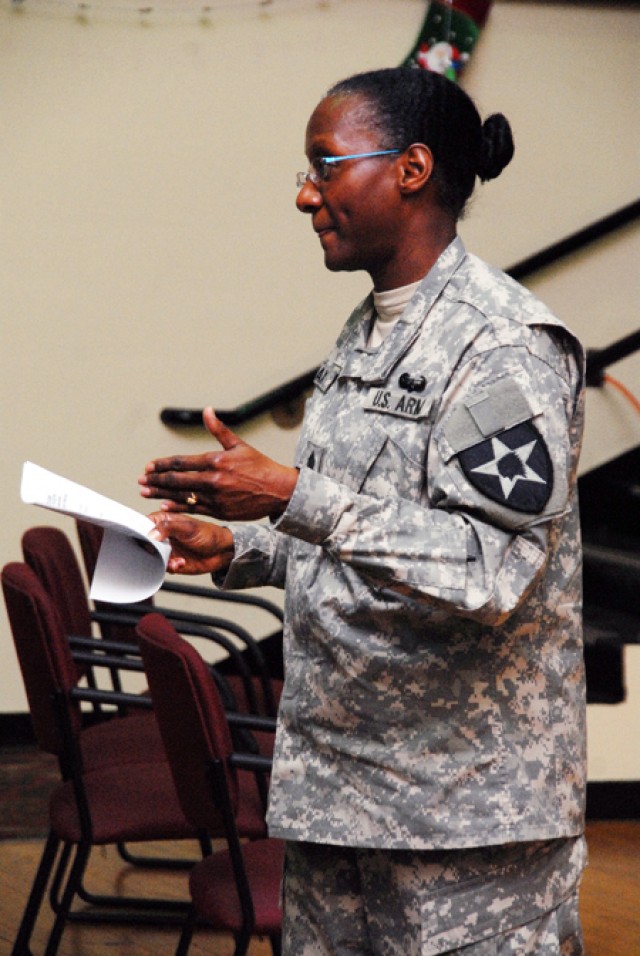CASEY GARRISON, South Korea - Warrior Country Soldiers and civilians gathered to hear what guest speakers and their peers had to say during the second annual Equal Employment Office Federal Employed Women's symposium Dec. 8 in the USAG-Casey Community Activities Center.
The symposium that lasted the entire business day, discussed a variety of topics from education to health and well-being. The main focus of the symposium, the Glass Ceiling, was an issue many women did not recognize.
While the term may be casually used, the Department of Labor took it very seriously in 1991 when they issued a definition of it, stating that a glass ceiling is made up of "artificial barriers based on attitudinal or organizational bias that prevent qualified individuals from advancing upward in their organization into management-level positions." The Department went on to establish a Glass Ceiling Commission in an effort to "level the playing field."
Brenda Kittrell, Warrior Country Army Substance Abuse Program clinical director, was the first speaker about the matter. Kittrell spoke about the Glass Ceiling and provided a history with definitions, variations, and related terms, as well as the impact it holds on ethnic Americans and solutions for the problem.
Command Sgt. Maj. Yolanda Lomax, 70th Brigade Support Battalion command sergeant major, followed Kittrell with more observations about the Glass Ceiling and her experiences with it.
One of Lomax's main talking points during the symposium was her opinion about how women are their own worst enemies when advancing their career field. Lomax illustrated her point with a personal story dating few years in the past when she was a sergeant major. She had to be rated on her job performance by her commander, whom she described as one of the best officers she has served with. Prior to receiving her report from the officer, Lomax was told to fill out her own report because the officer wanted to see what Lomax truly thought of her job performance.
When Lomax was finished and turned the report in, Lomax told the audience the officer was a little surprised at the remarks Lomax made. Lomax said when the officer gave her the report he filled out, she found he held her in high regards and thought of her as an asset to the company and the Army. In the end, she re-emphasized the importance of women placing confidence in them and not being afraid to receive bonuses, awards, praises and accolades when it is something they deserve.
"Do not take things for face value; look inside yourself, there is a lot there, do not let anyone degrade your worth because you are worth what you give to people," said Command Sgt. Maj. Earlene Lavender, USAG-RC command sergeant major.


Social Sharing